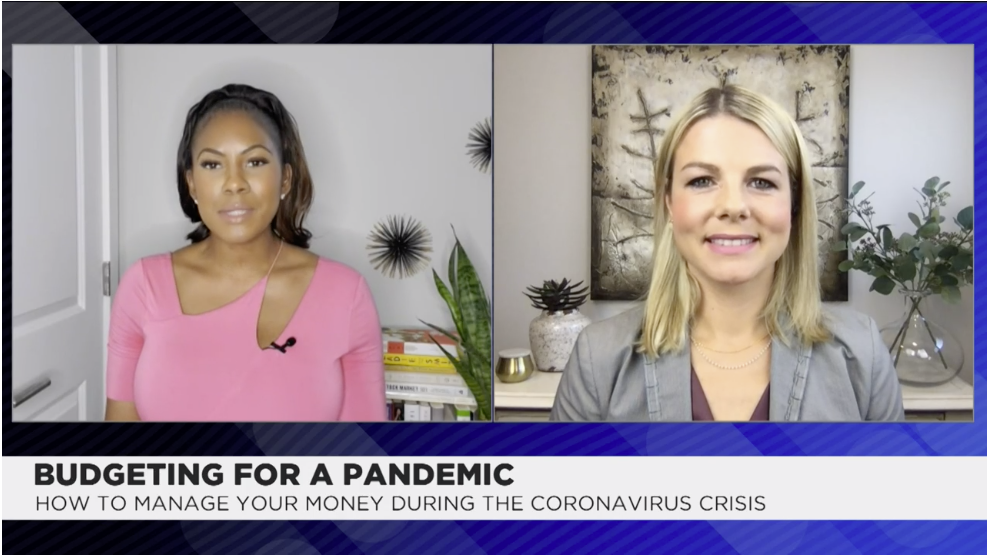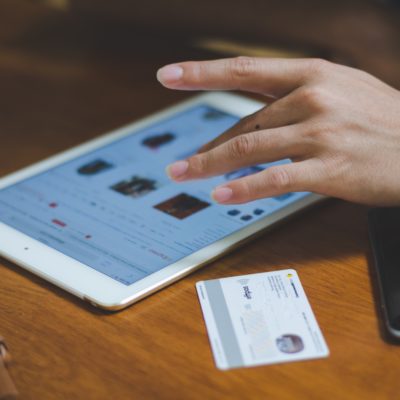I recently joined Cheddar to talk about how people can budget and manage their money during this pandemic (you can watch the segment by clicking the image above!). With businesses shutting down and workers losing their jobs, it’s more crucial than ever to understand your own financial situation and create as much wiggle room in your budget for the unexpected.
If you are one of the 3.3 million Americans who filed for unemployment due to the financial impact of the coronavirus outbreak, or feel your job may be threatened if it doesn’t clear up soon, I have several tips that can ease the burden on your budget of our current crisis and hopefully give you a little more cushion and peace of mind that you and your family will be safe.
Step 1: Call Your Creditors & Bill Providers.
Mortgage and auto loan lenders, credit card companies and even your energy provider or other service providers are offering to suspend payments for 30 to 90 days (depending on their policy and your state’s requirements) without penalty or interest charges for anyone experiencing financial hardship due to the coronavirus outbreak. Don’t wait until you start missing payments though. Call your creditors and bill providers now before the system is overloaded to figure out what you need to do to qualify for suspended or reduced payments. This can help you determine which bills you need to pay in full and which ones you can wait to pay for the time being. Even if you have money to pay your mortgage, you may want to hold off on paying your lender and keep that cash in a separate account for now.
Step 2: Lower Your Current Bills.
Review your credit card and bank statements to see which nonessentials you can live without for the time being. You may even uncover subscription services you’re paying for and not even using that you can cancel. If you haven’t negotiated with your various service providers, get on the phone to ask about lowering your bill. Your cable and Internet provider may have a new promotion they can offer and inquire about switching to a lower-tiered data plan with your mobile provider since you can use free WiFi while you’re working from home right now.
Step 3: Use Free Services.
There are plenty of free options available to you through the Internet to save on entertainment, fitness and education for yourself and your kids. Instead of signing up for another video streaming or audio book membership, check with your local library as they may offer digital platforms like Hoopla, Overdrive and Kanopy where you can borrow and stream movies, TV shows/cartoons, video games and even get access to online tutoring at no cost. Plus, you can find free fitness videos on Youtube or IGTV, or download a free app like FitBod or Daily Workouts Fitness Trainer.
Step 4: Transfer your credit card balance.
My typical advice is NOT to carry a balance on your credit card from month to month and to pay as much as you can toward your card so you can lower your debt quickly and stop wasting money on interest. However, in these uncertain times, you need cash in your account for the unexpected so paying just your minimum is actually a better strategy especially for anyone who doesn’t have an emergency fund. But this doesn’t mean you have to be stuck paying interest. Look for a new credit card with a promotional offer of 0% interest on balance transfers. You could find these types of deals available for anywhere from 12 to 21 months. This can give you a lot of time to manage payments without accruing interest. The only caveat is that you will want to pay down that balance before the promotional period is up so you don’t get slapped with retroactive interest.
Step 5: Switch banks.
If you’re paying checking account fees, it’s time to find a new bank or credit union. Checking account holders who don’t meet minimum balance requirements pay on average $15 per month. But, there are plenty of free options out there so shop around. Moving your savings to a high yield online savings account can earn you up to 1.75% interest on those savings. For instance, VIO Bank currently offers 1.75% interest and American Express Personal Savings offers 1.7%. Much higher than you would get at your traditional brick and mortar bank.
Step 6: Beef Up Your Emergency Fund.
If you have no money savings at all or even if you have some, but not enough to pay for a few months of living expenses, now is a good time to beef up that savings and it’s important to know how to kickstart your emergency fund. You can do this by looking over all your bills to figure out which fixed expenses you aren’t paying for right now such as childcare/daycare, health club memberships, extracurricular activities, monthly facials, gas and commuting costs, etc. Put that money directly into a separate fund (such as an online savings account as I mentioned above!). Also, any money you save from cancelling other bills you’re not really using or after negotiating lower rates can go right to that savings account to. This will give you some extra cushion for an emergency.
Step 7: Earn Free Money Online.
There are many legitimate and easy ways to earn free money online to boost your budget. For instance, you can make money selling items you no longer need online at sites like Decluttr, eBay, Poshmark or ThredUp. You can even make money taking surveys online via Survey Junkie. Meanwhile, Swagbucks will pay you for browsing the Internet and even gives you cashback when you shop online. I also 2020 Panel where you can make anywhere from $50 to $500 by participating in a virtual focus group.
Hopefully, these tips help you manage your money and help you find something cash in your monthly budget to get through these tough times.
Save for the things that matter
Without giving up the things you love
Want your family’s financial future to feel safe and secure? Download my Easy Family Budget Worksheet and take control of your family’s finances in just 10 minutes!




